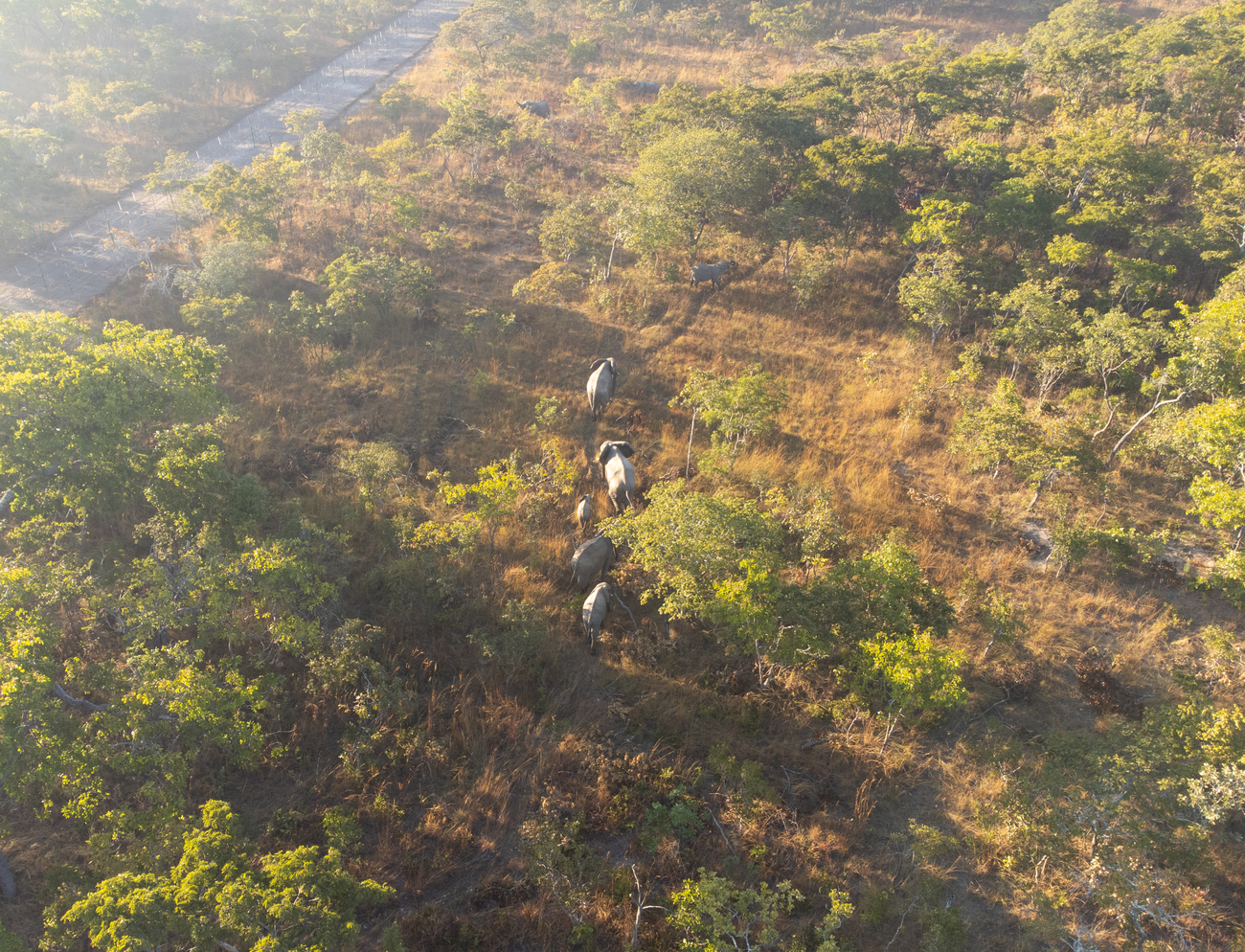Updates
Relief and recovery for animals and people in Myanmar
Read moreelephants on the move: 263 elephants translocated in Malawi

(Lilongwe, Malawi—2 August 2022) Conservationists have successfully translocated more than 260 elephants to Kasungu National Park in Malawi.
Malawi’s Department of National Parks and Wildlife (DNPW), the International Fund for Animal Welfare (IFAW) and African Parks (AP) announced the mission completed on schedule this weekend with 263 elephants moved to Kasungu National Park.
The translocation is part of a national conservation initiative to maintain healthy habitats in Malawi’s national parks, establish viable elephant populations, and ensure the prosperity of local communities living around the parks.
The elephants have moved to Kasungu NP where IFAW has worked to end poaching since 2015. Since then the park’s elephant population has grown from 50 individuals to about 120—it’s anticipated that the addition of 263 elephants from Liwonde NP to Kasungu NP will ensure the long-term conservation of elephants in Kasungu.
A wide variety of additional wildlife were also successfully translocated to Kasungu NP from Liwonde NP including 80 buffalo, 128 impala, 33 sable, 81 warthog and 109 waterbuck.
Kasungu is the second largest national park in Malawi covering 2,100 square kilometres, which is four times the size of Liwonde. In 2015, DNPW partnered with African Parks to transform Liwonde National Park into a secure wildlife haven and to realise its full potential as a precious resource for Malawi and its people. In 2018, the government extended the mandate to incorporate the contiguous 358 km² Mangochi Forest Reserve, increasing African Parks’ footprint.
"We are overjoyed that the exercise has been completed successfully, thanks to all of the partners who worked hard to finish the work on time. The addition of elephants and other wildlife species to Kasungu National Park will benefit Malawi tourism as well as communities through job creation, thereby fuelling a conservation-driven economy,” said Brighton Kumchedwa, Malawi’s Director of National Parks and Wildlife.
“The translocation of the elephants and other wildlife is a significant achievement and proves the DNPW’s approach to working with partners to secure its natural resources is a sound one. The partnership with the Malawi Government is not over; IFAW will continue to work at Kasungu National Park to ensure that the Park is fully restored to its former glory. We thank all partners and individuals who played different roles to ensure that the exercise is a success,” said Patricio Ndadzela, IFAW’s Country Director for Malawi and Zambia—IFAW supports DNPW in law enforcement, community and fencing, amongst other activities in Kasungu NP.
“We have been working in close partnership with the DNPW to generate benefits for people and wildlife since 2015. Thanks to the Malawian Government’s commitment to this landscape, Liwonde has re-emerged as a park not only hailed for the recovery of its wildlife numbers, but for its international tourism appeal,” said Sam Kamoto, African Parks’ Country Manager. “The addition of elephants to Kasungu will help with the overall tourism in the country contribute to local employment and fuel a conservation-led economy.”
###
About Malawi Department of National Parks and Wildlife (DNPW):
The Department of National Parks and Wildlife (DNPW) is one of the departments under the Ministry Tourism, Culture and Wildlife and is responsible for the management and conservation of wildlife resources in Malawi. Our mission is to conserve and manage protected areas and wildlife for present and future Malawians through enforcement of wildlife legislation, adaptive management, effective monitoring and governance.
About African Parks: African Parks is a non-profit conservation organisation that takes on the complete responsibility for the rehabilitation and long-term management of national parks in partnership with governments and local communities. African Parks manages 20 national parks and protected areas in 11 countries covering over 17 million hectares in Angola, Benin, Central African Republic, Chad, the Democratic Republic of Congo, the Republic of Congo, Malawi, Mozambique, Rwanda, Zambia and Zimbabwe. For more information visit www.africanparks.org, Twitter, Instagram and Facebook.
About the International Fund for Animal Welfare (IFAW): The International Fund for Animal Welfare is a global non-profit helping animals and people thrive together. We are experts and everyday people, working across seas, oceans and in more than 40 countries around the world. We rescue, rehabilitate and release animals, and we restore and protect their natural habitats. The problems we’re up against are urgent and complicated. To solve them, we match fresh thinking with bold action. We partner with local communities, governments, non-governmental organisations and businesses. Together, we pioneer new and innovative ways to help all species flourish. See how at ifaw.org.
Contact:
Malawi Department of National Parks and Wildlife (DNPW)
Catherine Chunga: +265 995 436 419; chunga catherine@gmail.com
International Fund for Animal Welfare (IFAW)
Christina Pretorius: +27 (0)82 330 2558; cpretorius@ifaw.org
African Parks
Yolanda Mtshali: +27727344869; yolandam@africanparks.org

every problem has a solution, every solution needs support.
The problems we face are urgent, complicated, and resistant to change. Real solutions demand creativity, hard work, and involvement from people like you.
Unfortunately, the browser you use is outdated and does not allow you to display the site correctly. Please install any of the modern browsers, for example:
Google Chrome Firefox Safari